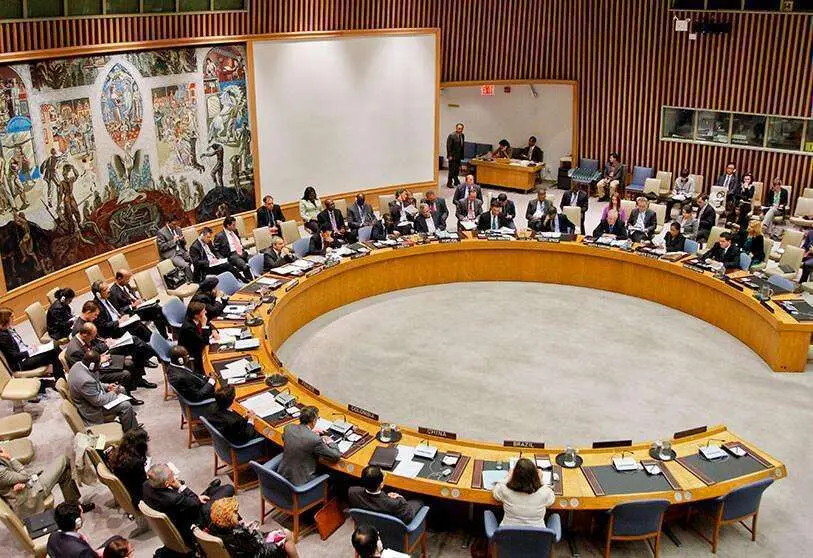UN refuses to extend arms embargo to Iran

Total rejection. This is the reaction that the United States has found in the UN Security Council to its proposal to extend indefinitely the arms embargo on Iran that expires next October, according to the Efe news agency this Thursday at dawn. Of the 15 members of this body, only the Dominican Republic has supported Washington's request, far from the nine votes needed to move the project forward. China, Russia, France, Germany and the United Kingdom had already advanced the veto to the proposal before the vote. The remaining eight members of the UN's highest body have chosen to abstain, leading the initiative to total failure.
Although Kelly Craft, the White House's permanent representative to the UN, had said Thursday that the proposal had come about after months of active diplomacy on the part of the United States, none of the major powers present in the Security Council had supported Washington's plans. In a brief note, the Belgian mission to the Security Council showed the view shared by its European partners, assuring that its priority is to "contain Iran's nuclear programme" within the framework of the nuclear agreement signed in 2015 with Tehran, known by the acronym JCPOA and which, according to the Belgian mission, "is the best multilateral instrument to address our shared concerns". The agreement was withdrawn by Washington after the arrival of Donald Trump as president.
The arms embargo on Iran, which restricts the country from buying and selling weapons, expires on October 18, according to the resolution with which the Security Council backed the nuclear agreement reached in 2015 between six international powers and Tehran. At the time, Germany, France, the United Kingdom, the United States, Russia and China signed an agreement with Iran whereby Tehran agreed to reduce the size of its nuclear programme to ensure that it was not capable of acquiring an atomic weapon in the short term. In return, it received relief from several rounds of UN-approved sanctions in the years when it failed to help clarify whether its atomic programme had a military purpose or not. The United States, which has emerged from that pact, argues that the continuation of the embargo is absolutely essential to stability in the Middle East region.

For Kelly Craft, "Iran's actions fuel conflict, chaos and human suffering on a large scale. It continues to endanger the lives and livelihoods of millions of children, women and men by actively supporting terrorist groups and organizations in countries such as Syria, Yemen, Lebanon and Iraq. "The arms embargo is a simple, common-sense measure requested by those countries in the Middle East that have suffered the most from the Iranian regime's active support for terrorism and from creating chaos in the region and beyond," Craft said on the eve of the vote.
For the United States, the Security Council should not allow Iran access to advanced weapons such as fighter planes, helicopters, tanks, missile systems or warships. "I urge all members of the Security Council to wake up to the real world implications of allowing this arms embargo to be lifted," Craft said before the vote, concluding that "a failure to extend the embargo will make a mockery of the sacred responsibility [to promote international peace and security] on which the United Nations has been founded".
As part of its diplomatic offensive, the United States has warned that if the extension of the embargo does not go ahead, it will use other avenues to keep it in place. The White House suggested that it could invoke a clause that is part of the 2015 nuclear agreement and which was designed to re-impose on Tehran all the UN sanctions that had been lifted, but only if it was found to have violated the pact.
The European powers, as well as China and Russia, question whether the United States has the right to use this mechanism since it abandoned the 2015 pact and stopped complying with its commitments. According to several countries, this path would mean the end of the nuclear agreement, which for now Iran and the signatory powers - aside from the United States - are still trying to keep alive.
"The UN Security Council has failed to hold Iran accountable. It has allowed the world's leading state sponsor of terrorism to buy and sell deadly weapons and ignored the demands of Middle Eastern countries. The United States will continue to work to correct this mistake," U.S. Secretary of State Mike Pompeo said after the outcome was announced.








